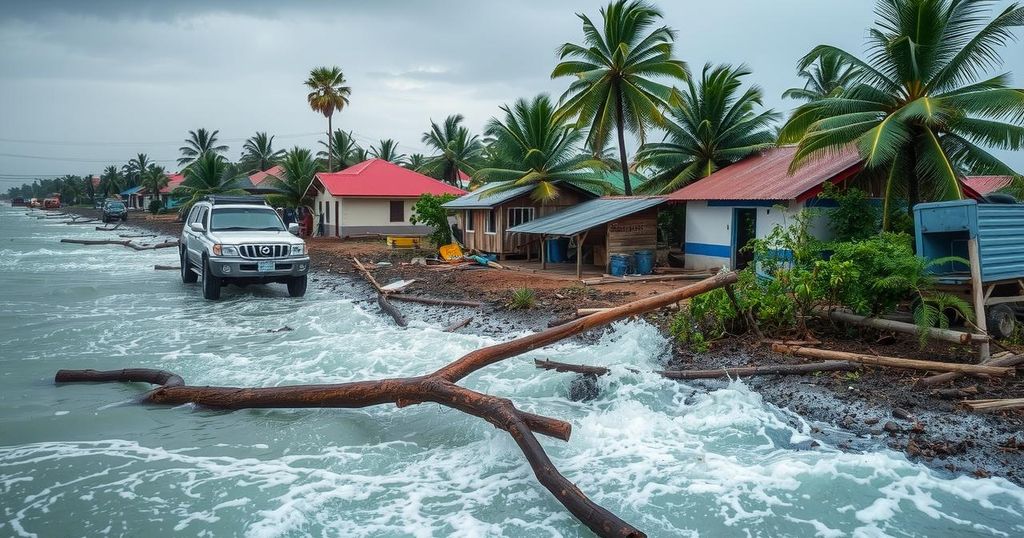Humanitarian Crisis in Mozambique Following Cyclone Chido: Urgent Appeal for Assistance
Tropical Cyclone Chido has devastated communities in Mozambique, impacting approximately 453,971 people, with significant destruction of infrastructure. The cyclone has led to over 120 deaths, extensive damage to housing and essential services, and further complications due to a cholera outbreak. A coordinated humanitarian response is urgently required to address the immediate needs of affected populations and prevent further health crises.
The recent devastation caused by Tropical Cyclone Chido in Mozambique has prompted significant humanitarian needs following its landfall on December 15, 2024. This cyclone brought intense rainfall exceeding 250 mm within a single day, alongside gale-force winds reaching 120 km/h, leading to catastrophic destruction across affected communities. As per the National Institute for Natural Disasters (INGD), approximately 453,971 individuals were impacted, with tragic reports of 120 fatalities and hundreds injured. Various infrastructures, including over 70,000 homes, numerous schools, health facilities, and essential services such as electricity, have been heavily damaged or completely destroyed, necessitating an urgent response from both local and international agencies.
Tropical Cyclone Chido struck Mozambique during a period of heightened vulnerability, as many communities were already coping with existing crises such as violence, drought, and health emergencies. The cyclone’s aftermath exacerbated the humanitarian situation, particularly in Cabo Delgado Province, which had previously faced significant challenges due to conflict and displacement. This context presents complex challenges for humanitarian response initiatives, as the affected populations are often living in makeshift shelters and lack adequate resources to cope with additional disasters.
The magnitude of the humanitarian crisis unfolding in Mozambique due to Cyclone Chido underscores the urgent need for comprehensive intervention strategies. As the number of affected individuals surpasses critical thresholds, a coordinated response is essential to provide immediate assistance, including shelter, food, healthcare, and support for rebuilding livelihoods. Enhancing communication and infrastructure, while also addressing protection and health concerns, will be vital to mitigate further suffering and to restore stability in the affected regions.
Original Source: reliefweb.int




Post Comment